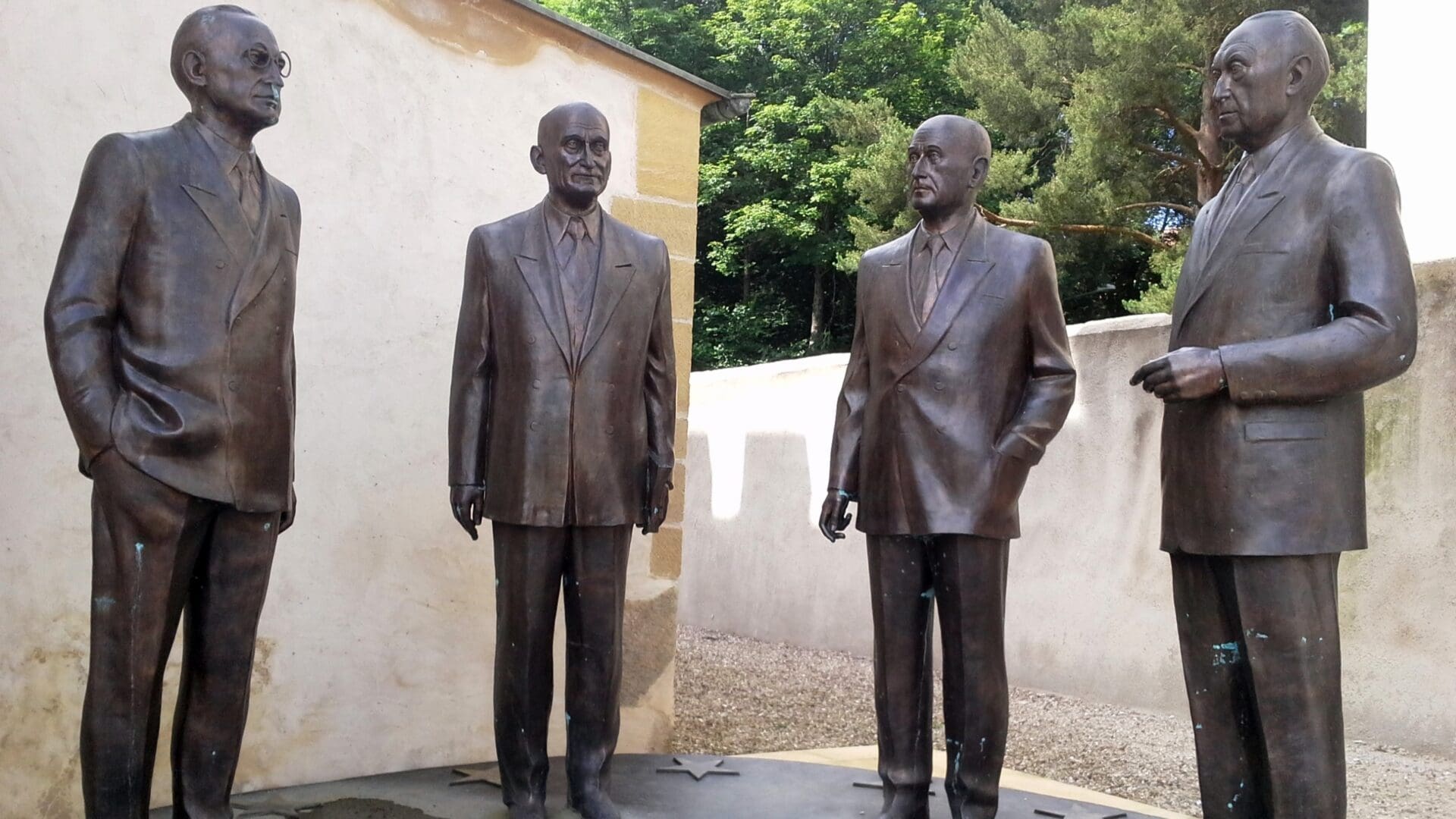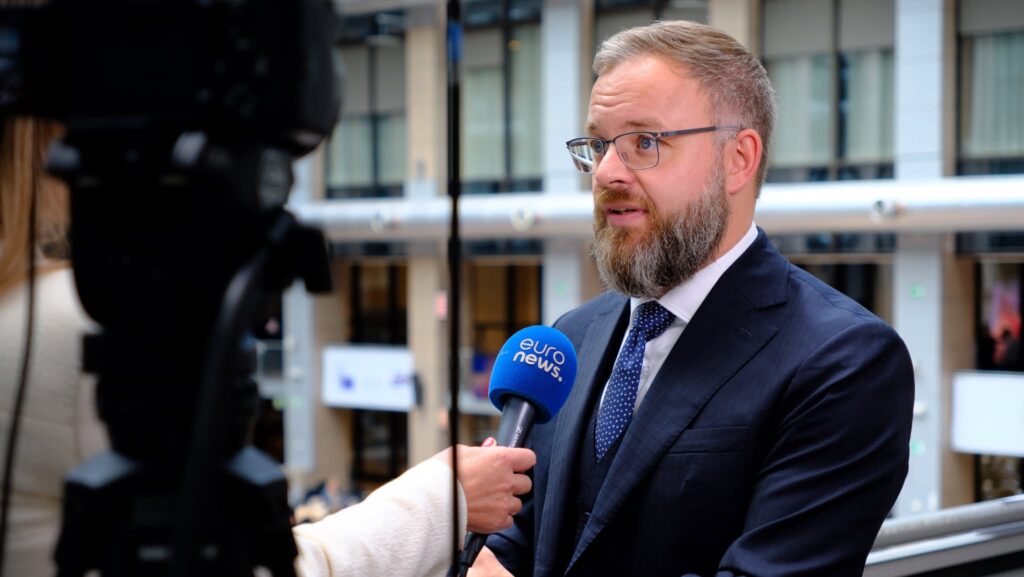In his opening remarks at the Conservative Political Action Conference (CPAC) in Budapest on Thursday, Matt Schlapp, President of the American Conservative Union (ACU) said: ‘The United States—[or for that matter any democracy]—can only be successful if it sticks to religion and traditional values. As a world power’, he noted, ‘our time could quickly run out if we are constantly working to erode the foundations on which our democracy rests.’
This is line with what John Adams, one of the American Founding Fathers and second President of the United States once said of the US Constitution in that it ‘was made only for a moral and religious people. It is wholly inadequate to the government of any other’.
Today,
the very threshold of democratic society is being threatened by associations and organisations that portray a false sense of freedom.
Just like communism, the woke and gender movements are seeking to destroy the national community and to dismantle the cultural basis for the functioning of the nation-state. These were the sentiments shared by Prime Minister Viktor Orbán speaking at forum by Center for Fundamental Rights, entitled ‘United We Stand!’
‘They are exactly like communism used to be, artificially dividing the nation into minorities to create discord between groups, which is their power base,’ he explained. ‘Western nations are also threatened by progressive foreign policies, which always lead us into war.’
These endeavours are evident. However, there are also less conspicuous agents which are equally impending democracy, such as the elite of the European Union.
The Anti-Democratic EU
The EU, while it officially upholds liberty and freedom of every government ‘by the people, of the people, and for the people’, its handling of recent crises, such as the debts of some of its member states, like Greece in 2015, has shown its lack of respect for democratic choice. In fact, it has lately removed economic decisions from control of sovereign countries. Brussels, for example, is currently withholding nearly €28 billion in EU funds from Hungary. This includes the country’s entire share of the bloc’s cohesion funds for the 2021-2027 period amounting to €22 billion and €5.8 billion under the Recovery and Resilience Facility (RRF), the bloc’s post-COVID stimulus programme.
The EU Commission and member states had initially agreed to freeze just €6.3 billion in cohesion money—on top of the €5.8 billion in RRF funds—over rule of law issues under the new conditionality mechanism. Yet is was expanded to the whole €22 billion in late December 2022, after the EU’s executive ruled that several other laws, specifically LGTBQ+ ‘rights’ were not being observed by Budapest as requested by the Charter of Fundamental Rights.
A major problem with the structure of the EU is that it is not fully based on representative democracy. A case in point, notwithstanding the fact that EU Parliament members are elected by the citizens of the member states, EU leaders picked Ursula von her Leyen to replace Jean-Claude Juncker as the leader of the European Union’s executive branch behind closed doors.
Under her, the EU Commission has become a ‘despot’
by determining what policies are going to be debated over in Parliament without the latter’s input.
The EU governmental institutions are shaped in order to coordinate among the member states with limited resistance, even though certain decisions can be vetoed by a member state. As this bureaucratic apparatus grows—pending on whether it has achieved its initial goals or not—it begins to indulge itself into more complex and sensitive areas. Consequently, it takes on selected issues of small countries, such as Hungary, imposing its agenda upon them without any regard for their culture, rule of law, or sovereignty of the nation. All under the pretension of upholding democratic principles.
The ‘Majority Rules’ Predicament
A dilemma of democracy is the notion of the ‘majority rules’ that can literally bring about the worst of evils. One can go back to the first infamous democratic decision in history in which both the Sanhedrin and the crowds before Pontius Pilate publicly voted to crucify Jesus of Nazareth.[i]
Some even point out, as the failure of democracy, the election of National Socialists to Parliament in Germany, which led to the appointment of Adolf Hitler as Chancellor on 30 January 1933, by President Paul von Hindenburg. Hitler, subsequently, dissolved Parliament and ruled by decree, thus implementing laws that led to some of the most heinous crimes of all time.
Thomas Hobbes and John Locke were perceptive in that not every human being is capable of discerning how to rule for himself, let alone making decisions for others. Yet as Winston Churchill had stated:
‘No one pretends that democracy is perfect or all-wise. Indeed it has been said that democracy is the worst form of Government except for all those other forms that have been tried from time to time…’
This statement could perhaps be addressed to those who believe a monarchy is the better, if not the best, form of government, which is a legitimate position. While it can certainly be more ‘efficient’ in that decisions are made by one person, I pose the question:
‘Who then keeps the monarch in check if he turns out to be a Caligula, an Ivan IV of Russia (also known as Ivan the Terrible), or Leopold II of Belgium? What recourse to justice can the People have? To whom?’ I answer: ‘At least in a democratic society—unlike in Communist China—one can appeal certain things, and with the right to vote, one can hope to elect an official out of office if he or she is not complying with the common good.’
The Framers of the US Constitution took ‘their stand on a fundamental natural rights theory that all legitimate governmental power and authority comes ultimately from God but [given] directly to the ruler, through the people themselves, and that [they enter] into a state of society and [form] a government, voluntarily surrender[ing] some rights to insure the protection of others.’[ii]
If this is not observed,
as in the case of the EU and those democracies where there is no reference to God,
then either the rule of the mob or anarchy dictates the rule of law. It is, therefore, up to each and every single one of us invite others to reflect upon the gospel message, for, as then Pope Benedict XVI said:
‘[T]he desire for God…is profoundly inscribed into each human soul and cannot disappear. Certainly we can forget God for a time…but God never disappears,’ Pope Benedict said on screen, though he was not in the audience. ‘This restlessness…is an expression of the hope that man may, ever and anew… start to journey towards this God.’
[i] Both the Jewish ruling body, the Sanhedrin, i.e., the chief priests and elders, and the crowds collectively requested Jesus to be crucified when given a choice by the Roman Governor Pontius Pilate. Cfr. Gospel of Matthew 27, 15-21.
[ii] Charles S. Desmond, ‘Natural Law and the American Constitution’, in Fordham Law Review, Vol. 22, Issue 3, 1953, 236, https://ir.lawnet.fordham.edu/cgi/viewcontent.cgi?article=1424&context=flr), accessed 2 May 2023.








